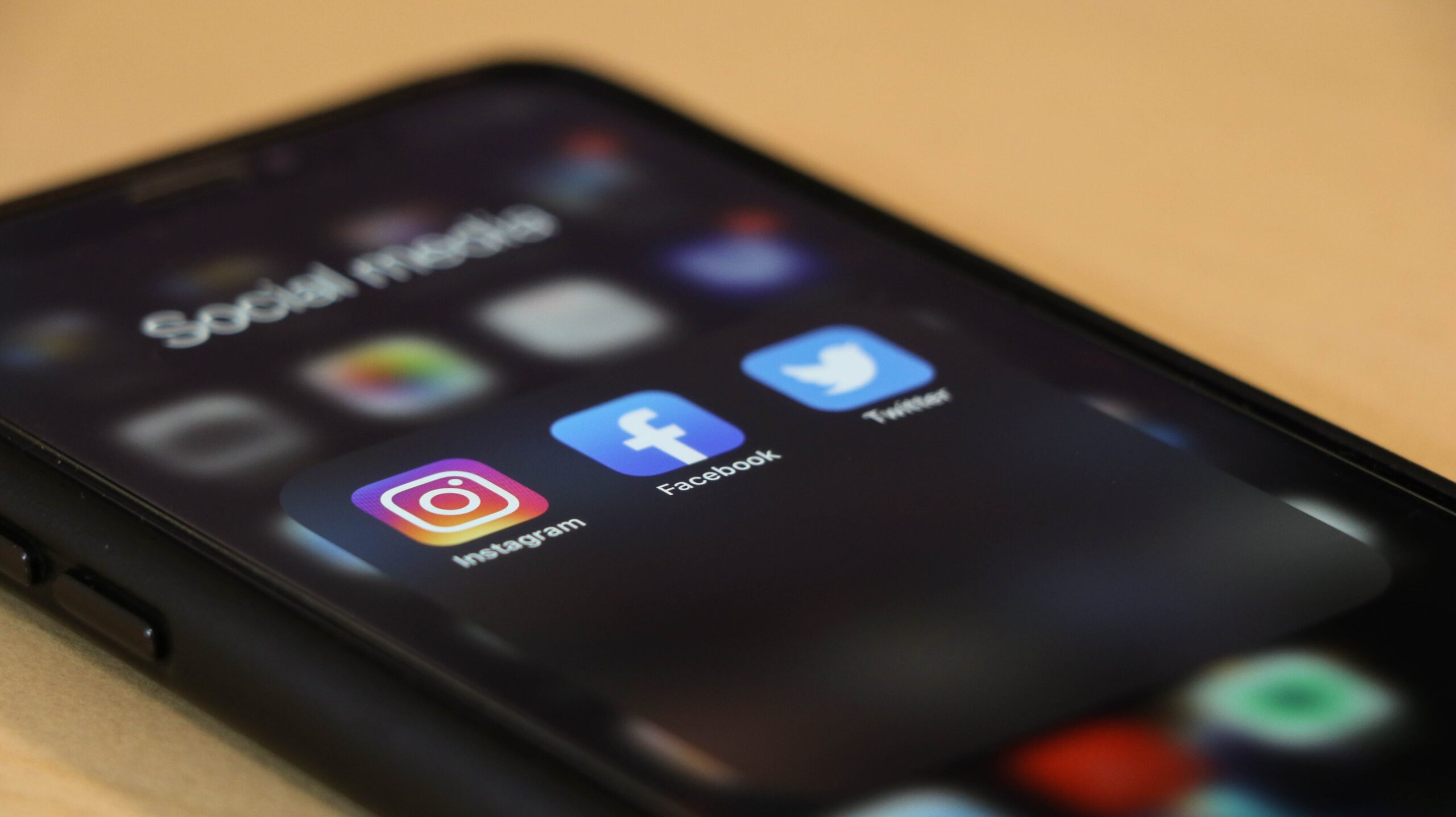Social media is rapidly transforming how news is produced and consumed, revolutionising the pre-digital newsroom and accelerating widespread accessibility of information. The digital evolution is causing a shift in news engagement behaviours, increasing political polarisation and challenging the fabric of Western liberal democracies. Journalism must continue adapting to champion critical political debate in the digital era.
The digital evolution and social media algorithms
With the advent of social media platforms like Facebook, Twitter, and TikTok, news is now available at the click of a button. Scenes of expectantly hovering around the television for the six o’clock news are fading in favour of silently scrolling through headlines on mobile devices. Social media platforms have opened the door to an eased accessibility of news, information, and education resources not seen in the pre-digital era. The rising popularity of social media platforms as accepted media outlets is impacting news consumption behaviours. Australians are consuming more news more frequently than ever before, preferring to view their news online via carefully curated newsfeeds.
Social media algorithms sort content in users’ newsfeeds, tailoring the order in which posts appear based on individual user preferences. Algorithms rank content according to its perceived relevance for a user and prioritise user engagement to curate the most desirable user experience. In this way, social media algorithms act as a persuasive technology, with the ability to influence who users vote for through exploitation of their emotional and psychological responses to engaging content.
Algorithms that prioritise engagement over accuracy can increase the spread of misinformation and disinformation. This can result in public distrust of journalism and Western liberal democratic processes, which was highlighted when the term “fake news” became mainstream during the 2016 US presidential election.
In 2018, the Cambridge Analytica data scandal shone a light on the dark side of social media. In the wake of Donald Trump’s presidential success, Facebook was fined for data breaches associated with sharing the information of more than 87 million users with Cambridge Analytica, a British consulting firm that provided analytical assistance to Trump’s election campaign.
The role of social media in political campaigns
With user-experience optimising algorithms, social media companies make it easy for politicians to target specific audiences with tailored campaign advertisements. Social media ad campaigns can reach more audiences than ever before, enabling delivery of targeted messaging to specific audience groups.
Political candidates now use social media as a key tool for campaigning, using different techniques to reach different audiences. The 2020 US presidential election highlighted social media’s effectiveness in reaching widespread online audiences. In 2020, the word “Trump” appeared more than 33,000 times in posts and was the single-most used term among Democratic lawmakers at the time, demonstrating the power of social media in amplifying the Trump brand. Trump’s 2020 campaign, backed by his established social media presence and networks of influential conservatives, relied on amplification of the Trump brand via social media ads to sway voters.
President Biden utilised social media influencers to share his campaign information in a more intimate fashion, leveraging the credibility of influencers to target specific cohorts within online influencer networks. This campaign strategy harnessed the power of targeted messaging by boosting video content showing Biden interacting informally with influencers about issues directly impacting their networks.
The link between social media and political polarisation
Political polarisation is the extent to which public opinion is split between two opposing sides. Extreme political polarisation can impact democratic processes when two sides of an issue are polarised to an irreconcilable extent.
Personalised content feeds can create situations where individuals are bombarded with posts promoting one side of an issue. This increases the likelihood users will join homogenous discussion groups, which can create virtual echo chambers in which users more likely to adopt extreme views on an issue after frequent interactions with like-minded peers. A 2017 study of political discourse within Japanese Twitter communities found both left-wing and right-wing users rarely discussed overlapping political issues, creating virtual echo chambers that were exacerbated by Twitter’s “who to follow” feature.
In 2020, the Wall Street Journal reported an internal Facebook analysis that found 64% of Facebook users who joined extremist groups did so because they were recommended these groups by the algorithm. Though Facebook has since modified its algorithm, the platform still houses free-to-join political groups with thousands of members. These groups host polls inviting members to “agree” or “disagree” on various issues, which are polarising stances with limited scope for critical debate. In this way, social media algorithms enable ideological polarisation.
The role of journalism in the digital era
Journalism must recognise that social media is here to stay. Faced with weakening trust in news and democratic processes, journalists must continue reporting on public interest matters while adapting to social media trends.
In the digital era, the role of journalism in championing critical debate is more important than ever. Social media presents a real opportunity for journalists to capitalise on new skillsets, including multimedia production and digital marketing skills, to report the facts.
Featured image: Social media is changing how we consume news. Photo: dole777 on Unsplash








I find the 24/7 news cycle to be laborious. There is such a thing as too much hard news. Journalism must be progressive, adaptable and creative in its presentation of the news to regain audience interest and engagement. Too many people just don’t consume the news because they don’t need to. “Social media will tell me if I need to know about something big.” Astute multimedia production and constructive journalism are key ingredients. More parallax storytelling. More humanising of the news. Make people feel as though they’re really missing out by not consuming the news.
I do agree with Benita here, with regards to social media enabling constant and sometimes overwhelming news. It can be very hard to navigate how many accounts to follow and who to follow. Although, I do appreciate how it innovates new platforms for expression of opinions. The Daily Aus for example, give easy to understand unbiased summaries of news issues that are going on in the country. Although, your comment on algorithms and virtual echo chambers has me questioning, as much as I believe what I follow to be unbiased (such as The Daily Aus) how unbiased is it really? At a minimum, I think social media platforms really need to crack down on removing posts that disseminate fake news and misinformation, without minimising people’s opinions, as this is what social media is about.
The rise of podcasting should give hope to those who think that there is a decline/disinterest in journalism. The way in which people (particularly younger generations) have embraced podcasts suggests that there is a considerable part of the population who are interested in consuming the news – they have not ‘switched off’ as many people might first assume. They are just seeking different forms/ways to consume their news. To this extent traditional journalism may benefit from assessing what so many find appealing about podcasting and see if there is room to adapt. By the same token, podcasting should look towards traditional journalism and ensure that journalistic standards are not abandoned in the pursuit of more subscribers.
It’s hard to argue that there is no causation, but just merely correlation, between the increased polarisation experienced across many Western democracies and the rise of social media. It’s also clear that journalism is struggling to figure out its place in this new world. It’s hard (if not impossible) for journalists to compete with the algorithms of social media companies like Facebook and Tik Tok, and ultimately it does not matter how incisive or important a journalistic piece is if no one can see it – i.e. if the algorithms in those dominant social media platforms are not giving journalism with integrity any visibility.
I think given our entrenched reliance on social media it’s more imperative than ever for news organisations to have a strong, engaging and informative presence on social media. The flexibility of social media means that different kinds of news can be presented on different platforms, in particular I think social media allows for more casual explainers and deep dives on issues that provide context for readers. Hopefully that can give audiences confidence to then read more on traditional news sites. However, none of that solves the issue of informal Facebook groups and similar echo chambers. More needs to be done in regulating social media platforms, even if it’s giving a different label – such as a green tick, like the current blue tick – which indicates if an account is providing reliable, well-researched information.
Rebecca Kazmierczak’s opinion on the role of digital platforms as news services outlines well the history and framework of how modern political influence is being taken from the ethics of the fourth estate, and ostensibly engineered via – among others – Mark Zuckerberg’s ever-famous algorithms. As much as this ‘persuasive technology’ is here to stay, one wonders if we could legislate for social media to not use algorithms for political content, as platforms can make sufficient money from advertising non-political posts. Of course, it would be a form of censoring, but off-set with societal censuring.
Social media is now such an important part of our everyday lives that the continued underutilisation of social media by news outlets is honestly shocking. Traditional news is clearly unable to keep up with the popularity of a new generation of ‘news’, that is political commentators and influencers. Personal connection through parasocial relationships gives social media news so much power and influence. The only way for the media to fight misinformation is to join them really. I am unsure if there is a solution to truly stop the spread of misinformation online, companies seem reluctant to become involved, controversial content generates more money. Is there any incentive for companies to take down this content beyond moral responsibility?